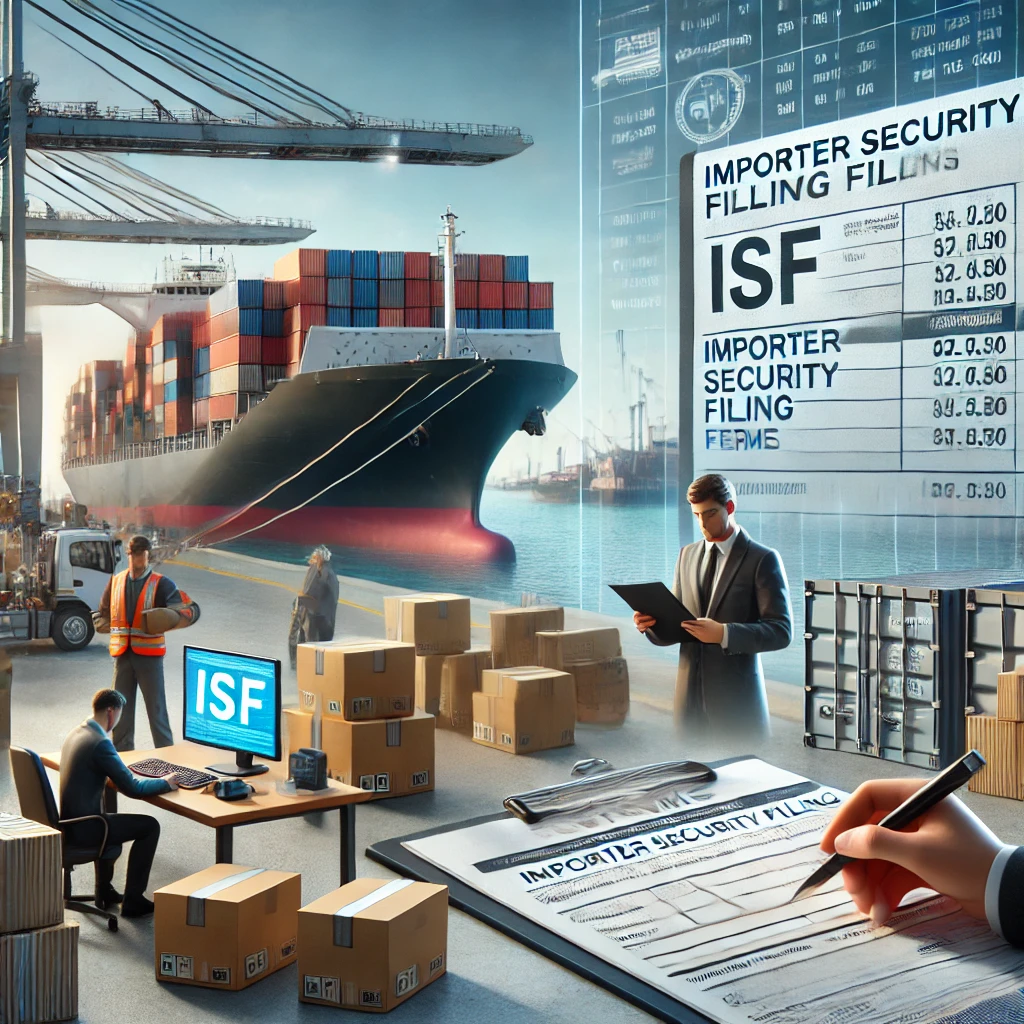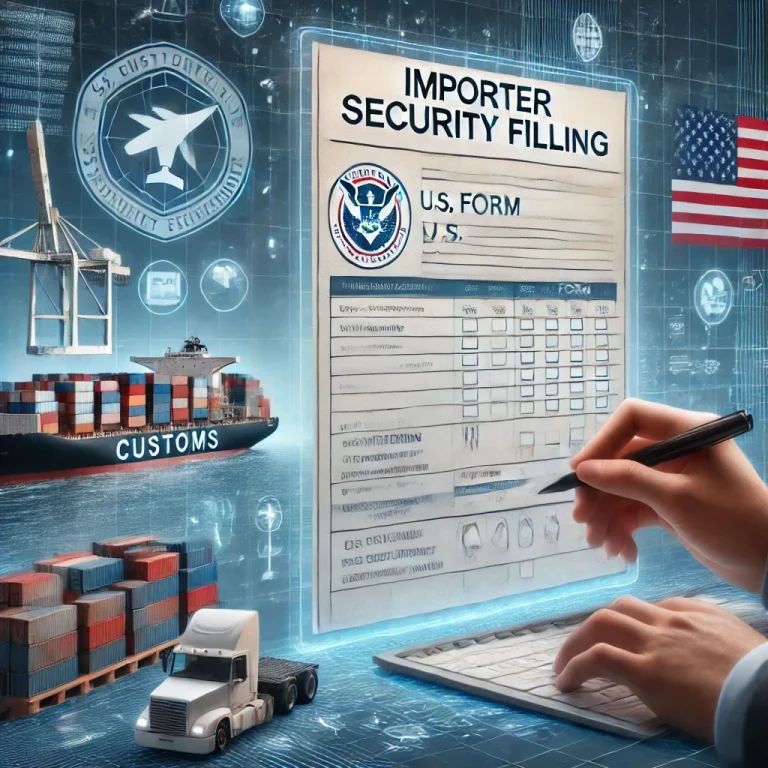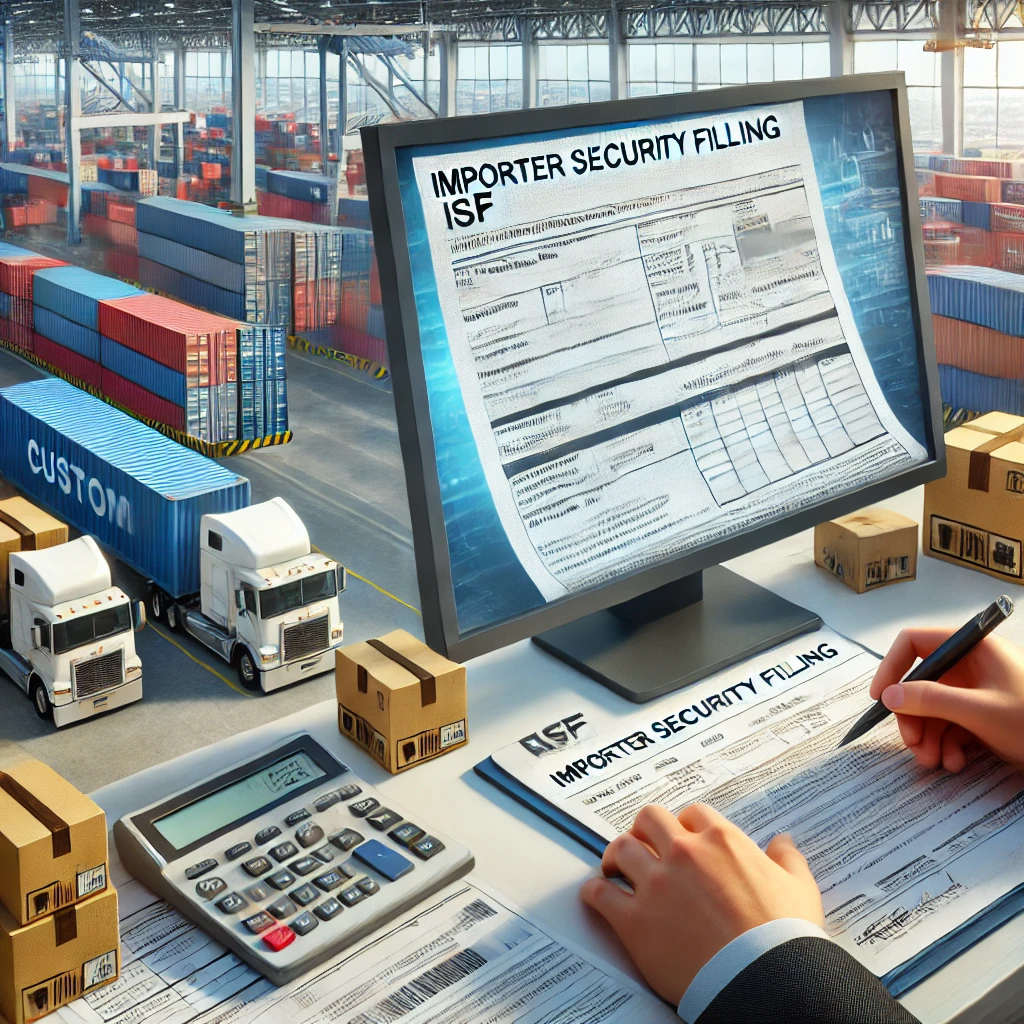ISF Form Fee: Everything You Need to Know in 2024

What is an ISF Form?
Before diving into the fees, let’s clarify what an ISF form is:
- ISF stands for Importer Security Filing, also known as “10+2”
- It’s a required document for all ocean freight shipments entering the United States
- The form must be submitted to U.S. Customs and Border Protection (CBP) at least 24 hours before loading cargo onto a vessel bound for the U.S.
Understanding the ISF Form Fee
The ISF form fee is a charge associated with filing the Importer Security Filing. Here’s what you need to know:
- Standard Fee Range: Typically, the ISF form fee ranges from $35 to $75 per filing.
- Service Provider Variation: Fees can vary depending on the service provider (customs broker or freight forwarder) you choose.
- Additional Costs: Be aware that the ISF form fee is separate from other customs-related charges.
Factors Affecting
Several factors can influence the cost of your ISF form fee:
- Complexity of the shipment: More complex shipments may incur higher fees
- Service provider’s expertise: Experienced providers might charge more but offer better service
- Volume of shipments: Regular importers may negotiate lower fees for bulk filings
- Additional services: Some providers offer value-added services that may increase the overall cost
ISF Bond: An Additional Consideration

When discussing ISF form fees, it’s important to mention the ISF bond:
- An ISF bond is required in addition to the form fee
- It serves as a guarantee to the CBP that you’ll comply with all regulations
- The bond typically costs between $100 and $250 annually for a continuous bond
- Single-transaction bonds are also available for one-time importers
How to Minimize ISF Form Fees
While ISF form fees are unavoidable, there are ways to keep costs down:
- Shop around: Compare fees from different service providers
- Bundle services: Some providers offer discounts if you use them for both ISF filing and customs brokerage
- Negotiate volume discounts: If you’re a frequent importer, ask about reduced rates for multiple filings
- Ensure accuracy: Avoid additional charges by providing complete and accurate information the first time
Penalties for Late or Incorrect ISF Filings
Understanding the potential penalties can help you appreciate the importance of proper ISF filing:
- Late filing: CBP can issue fines up to $5,000 per late ISF
- Inaccurate information: Penalties can reach up to $10,000 per violation
- Repeated violations: May result in increased scrutiny and potential cargo holds
ISF Filing Timeline: Don't Miss the Deadline
To avoid penalties, adhere to this timeline:
- 24 hours before loading: Submit ISF for standard shipments
- Any time prior to loading: For “FROB” (Foreign Cargo Remaining on Board) shipments
- 24 hours before arrival: For shipments consisting of only bulk and break bulk cargo

DIY vs. Professional ISF Filing Services
Deciding whether to file ISF forms yourself or use a professional service depends on several factors:
DIY Filing
- Pros: Potentially lower costs, direct control over the process
- Cons: Time-consuming, requires in-depth knowledge of customs regulations, higher risk of errors
Professional Services
- Pros: Expertise in customs regulations, time-saving, reduced risk of errors and penalties
- Cons: Additional service fees, less direct control over the process
For most importers, especially those new to the process or dealing with complex shipments, professional services often provide the best value despite the added cost.

Conclusion: Balancing Cost and Compliance
While the ISF form fee is an additional expense in the importing process, it’s a necessary one for ensuring compliance with U.S. customs regulations. By understanding the factors that influence these fees and how to minimize them, you can budget more effectively and avoid unexpected costs.
Remember, the consequences of non-compliance far outweigh the cost of proper ISF filing. Invest in accurate and timely submissions to keep your import operations running smoothly and avoid costly penalties.
Stay informed about any changes in ISF regulations and fees by regularly checking the CBP website or consulting with your customs broker. With the right approach, you can navigate ISF requirements efficiently and keep your focus on growing your import business.
